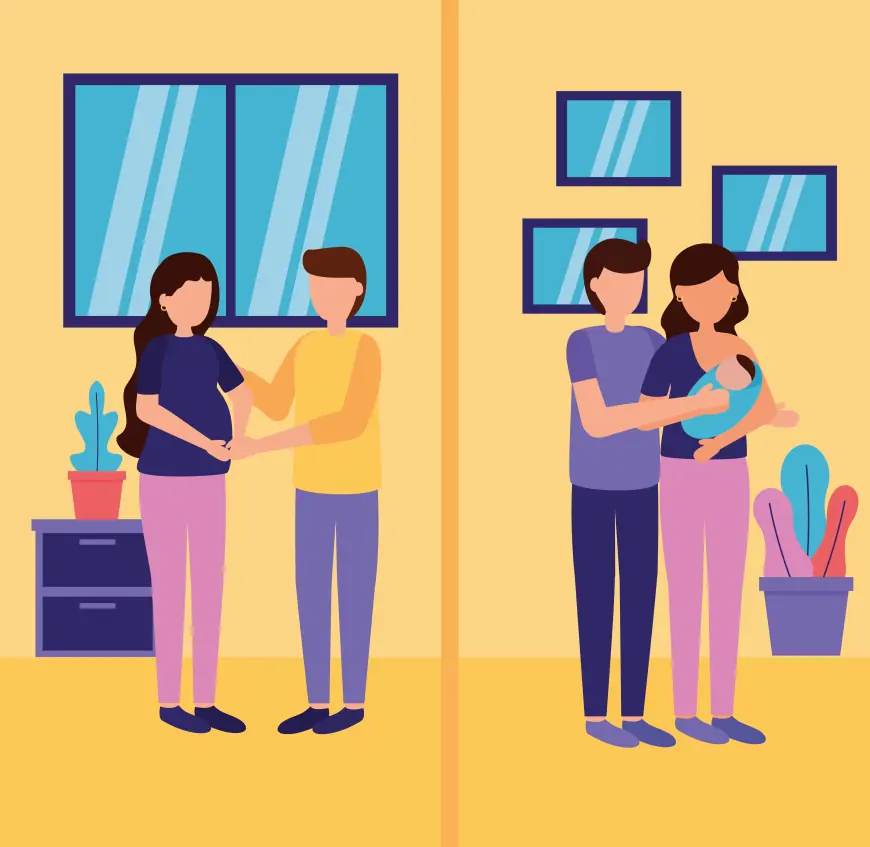How Women Can Emotionally Heal After Divorce

Divorce is one of life’s most emotionally intense experiences. It brings sudden changes, emotional weight, and a deep need for healing. While every woman’s journey is unique, many go through similar emotional patterns grief, confusion, anger, and eventually, strength. Divorce Support for Women is not just about managing the legal or financial aftermath. It’s also about helping women rebuild their emotional foundation and reconnect with themselves.
If you’ve recently gone through a separation or are in the process of divorce, know that healing is possible. And it starts with small, steady steps toward emotional wellness.
Understanding the Emotional Impact of Divorce
Why it Hurts So Deeply
Divorce is more than the end of a relationship. It often involves a breakdown of dreams, trust, routine, identity, and even social life. Whether the decision was mutual or unexpected, it can still feel like a personal failure or loss.
This emotional rollercoaster can affect your physical health, sleep patterns, and ability to make clear decisions. Recognizing the depth of this impact is the first step to moving forward.
Letting Yourself Feel
One of the most important aspects of emotional recovery is giving yourself permission to feel. Don’t rush to “move on” or suppress your emotions. Letting yourself cry, grieve, and express your pain is part of healing. You don’t have to be strong all the time. Strength is in allowing your emotions to pass through—not in pushing them away.
Building a New Support System
Reaching Out Without Shame
Many women isolate themselves during or after a divorce, either out of embarrassment or a sense of not wanting to burden others. But support is essential. Talk to close friends or family who listen without judgment. Join online or local groups focused on divorce healing for women you’ll find others walking the same path.
Consider Professional Support
Sometimes talking to a trained counselor, therapist, or emotional wellness coach can make a world of difference. These professionals provide guidance, help you process trauma, and equip you with tools to manage stress and anxiety. Sessions focused on emotional healing after separation can help restore clarity and calm.
Reclaiming Your Identity
Rediscover Who You Are
When you’ve been in a relationship for years, your identity can get tied up in your role as a partner or spouse. After divorce, it’s essential to reconnect with who you are—your interests, values, and dreams. Try picking up hobbies you once loved or learning something new. Give yourself space to just be, without needing to prove anything to anyone.
Set Emotional Boundaries
Whether you have to co-parent or maintain limited contact with your ex, emotional boundaries are crucial. Define what is acceptable for your peace and wellbeing. Boundaries protect your energy and give you time to heal without being pulled back into painful dynamics.
Managing Loneliness and Fear
Accept the Silence
The sudden quiet after a relationship ends can be difficult. But silence doesn’t have to mean emptiness. It can also be a space to reflect, rebuild, and rest. Fill your time intentionally—with calming activities, creative projects, or moments in nature.
Replace Fear with Small Goals
The future may feel uncertain, but you don’t have to figure everything out all at once. Set simple, short-term goals that give you something to focus on—like organizing your space, building a morning routine, or joining a support circle. These small victories build confidence over time.
Practicing Emotional Self-Care
Mindfulness and Meditation
Practices like deep breathing, meditation, or yoga can help you stay grounded and connected to the present moment. These techniques are especially helpful when emotional waves hit hard. Even a few minutes of stillness a day can support your mental clarity.
Journaling for Clarity
Writing your thoughts down is a powerful way to release emotions and understand your inner world better. Whether it’s about your fears, hopes, or daily reflections, journaling can bring a sense of control and healing. This is also a great space to track your growth as the days go by.
Creating a New Vision for Your Life
What Does Healing Look Like to You?
Healing doesn’t mean forgetting the past or pretending nothing happened. It means learning from it, growing beyond it, and finding peace. Define what emotional healing means to you. Is it inner calm? Emotional strength? The ability to forgive?
Embrace Change at Your Pace
Everyone heals differently. Avoid comparing your journey to others. Whether it takes months or years, you’re allowed to take your time. Be gentle with yourself as you adapt to this new chapter.
Conclusion: Healing Is a Journey, Not a Destination
If you’re navigating life after separation, know that healing is not linear. Some days will feel lighter, others heavy and that’s okay. What matters is that you keep showing up for yourself. Divorce Support for Women is about creating safe spaces—internally and externally where you can feel, rebuild, and move forward with hope.
Support doesn’t always come in big waves. Sometimes, it’s the daily practices, the quiet strength, and the gentle self-talk that make the biggest difference. If you're looking for guidance in this process, consider connecting with someone who understands emotional recovery on a deeper level. Aparnaa Jadhav has helped many women find emotional peace after divorce through her compassionate, grounded support.
Your healing is valid. Your new beginning is possible. Let the journey begin with care and confidence—with people like Aparnaa Jadhav by your side.
What's Your Reaction?
 Like
0
Like
0
 Dislike
0
Dislike
0
 Love
0
Love
0
 Funny
0
Funny
0
 Angry
0
Angry
0
 Sad
0
Sad
0
 Wow
0
Wow
0


















































